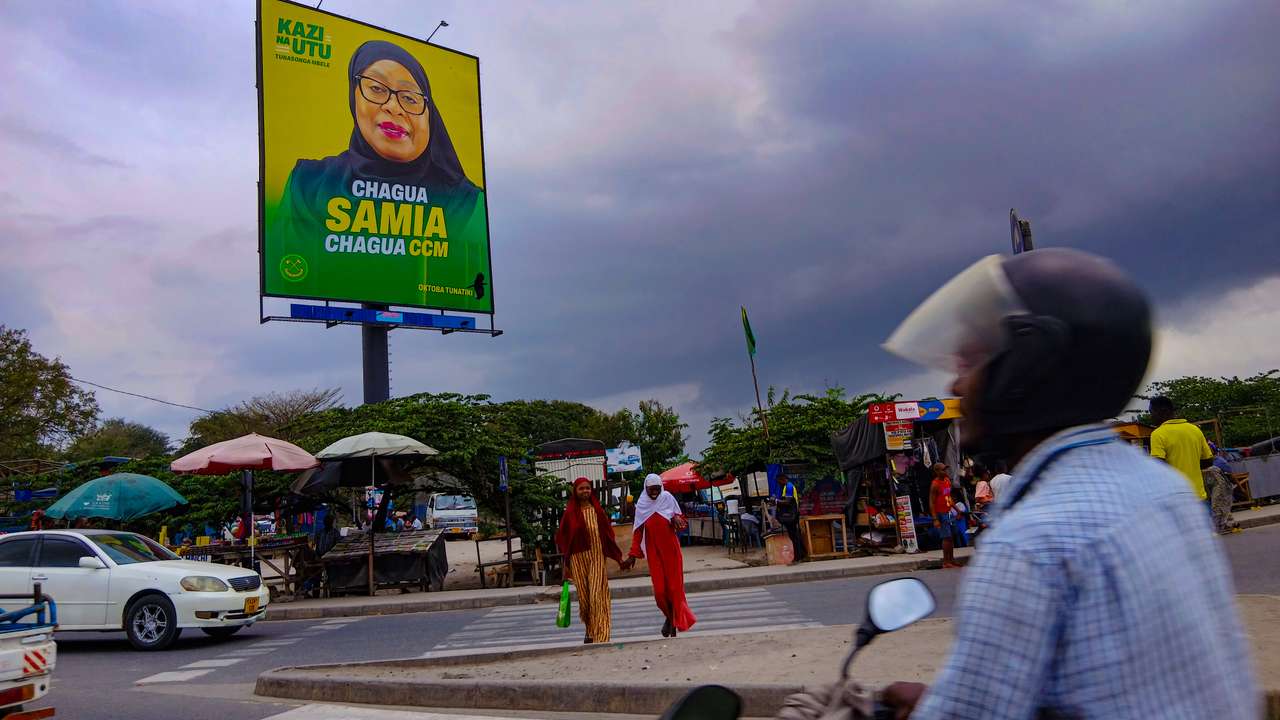As the country approaches its general elections on October 29, 2025, it is not the ballot box but the control of information that may decide the nation’s future. Across newsrooms, churches, and social media, fear and censorship are reshaping the space for public debate and democracy.
Over recent years, the government has steadily tightened control over what citizens can read, post, or even discuss. Key online platforms once central to public conversation — Twitter (now X), Clubhouse, Telegram, and the influential Tanzanian forum JamiiForums — have been blocked or restricted.
Many users now rely on VPNs to access these platforms. The Tanzania Communications Regulatory Authority (TCRA) denies restricting the use of VPNs but requires users to notify the regulator when using such applications — a move clearly designed to monitor and discourage digital privacy.
JamiiForums, often called “Tanzania’s WikiLeaks” for its role in exposing corruption and hosting open debates, was suspended for 90 days in September after it shared statements by politician Humphrey Polepole about President Samia Suluhu Hassan’s private meetings with a Zimbabwean businessman. Officials accused the site of “misleading the public” and “undermining national unity.”
This digital crackdown has gone hand in hand with pressure on the press. Jambo TV received three separate takedown orders in a single month.
Under Section 19 of the Media Services Act (2016) and Regulations 17–19 of the Media Services Regulations (2017), all journalists must hold government-issued press cards — a system many see as turning accreditation into a tool of control. Even entertainment programs now avoid political jokes or commentary, fearful that a single remark could bring punishment.
The campaign of control has reached beyond media into religious life
When Bishop Josephat Gwajima, a CCM lawmaker, accused the government of detentions and disappearances, his Glory of Christ Church in Dar es Salaam was swiftly deregistered and sealed by police as hundreds of worshippers protested. Officials said his sermons violated the “acceptable conduct” of religious organisations — a warning that even ruling-party insiders are not safe from retribution.
Disappearances have become part of Tanzania’s political landscape
Earlier this October, Humphrey Polepole, former ambassador to Cuba and a sharp critic of the administration, was abducted by unknown assailants shortly after resigning from his post and denouncing government abuses.
According to UN experts, there have been over 200 cases of enforced disappearances since 2019, forming what they call a “pattern of intimidation” against journalists, activists, opposition members, and other dissenting voices.
At a recent discussion hosted by Tanzania’s Tech and Media Convergency (TMC), participants described the internet as a field of “digital landmines,” where a single post can end a career. For many Tanzanians, silence now feels safer than speech.
But silencing truth has not stopped lies
With independent journalism under siege and online spaces censored, misinformation spreads unchecked. In early 2025, fact-checking platform JamiiCheck analysed 192 political claims circulating online. Of these, 128 were false, most targeting opposition parties.
Digital rights advocates believe that Tanzania’s Cybercrime Act and Electronic and Postal Communications Act are enforced selectively. Posts critical of the government vanish almost instantly, while pro-government falsehoods stay online — turning digital platforms into yet another instrument of political control.
As speech grows more restricted, political competition is also narrowing
The main opposition party, CHADEMA, has been disqualified from the race after refusing to sign an electoral code of conduct it called biased. Its leader, Tundu Lissu, faces treason charges widely viewed as politically motivated. He was arrested after a peaceful rally calling for electoral reform and accused of spreading false information — charges that could carry the death penalty.
Dozens of his supporters have been harassed or barred from attending his trial
Another opposition candidate, Luhaga Mpina, of the Alliance for Change and Transparency (ACT–Wazalendo), has also been banned from running. Once a senior CCM member, Mpina left the ruling party in August after being blocked from seeking re-nomination in his longtime parliamentary seat in Kisesa. His candidacy was seen as a serious challenge to President Samia — until the electoral commission disqualified him.
Many Tanzanians still remember the 2020 election, when the internet was shut down on polling day. Civil society groups warn that another blackout could leave voters, journalists, and observers in the dark — especially in rural areas. Without open communication, they say, rumours will thrive and public trust in the results will collapse.
Tanzania’s crisis reflects a wider African trend: the fusion of authoritarian control with digital technology. Across the continent, governments are using surveillance laws, internet shutdowns, and disinformation to shape public narratives and suppress dissent. But Tanzania stands out — for both its intensity and its timing — as it approaches a pivotal election where access to truth may matter as much as the vote itself.
Tanzania’s 2025 election will test more than political loyalty. It will test whether democracy can survive when speech, information, and belief are all under siege.
Restoring transparency will take more than promises. It will require protecting independent journalism, safeguarding free expression, investing in digital literacy, and dismantling the culture of fear that now grips the nation.
Until then, Tanzanians move toward the polls not only uncertain of their choices — but uncertain of what to believe.
The opinions and thoughts expressed in this article reflect only the author's views.
Mweha Msemo is a Tanzanian freelance journalist based in Dar es Salaam. He focuses on stories of marginalised communities, social justice, and digital rights. With a passion for amplifying unheard voices, his work highlights the lives and challenges of underrepresented groups, reflecting his commitment to raising awareness and fostering understanding.
